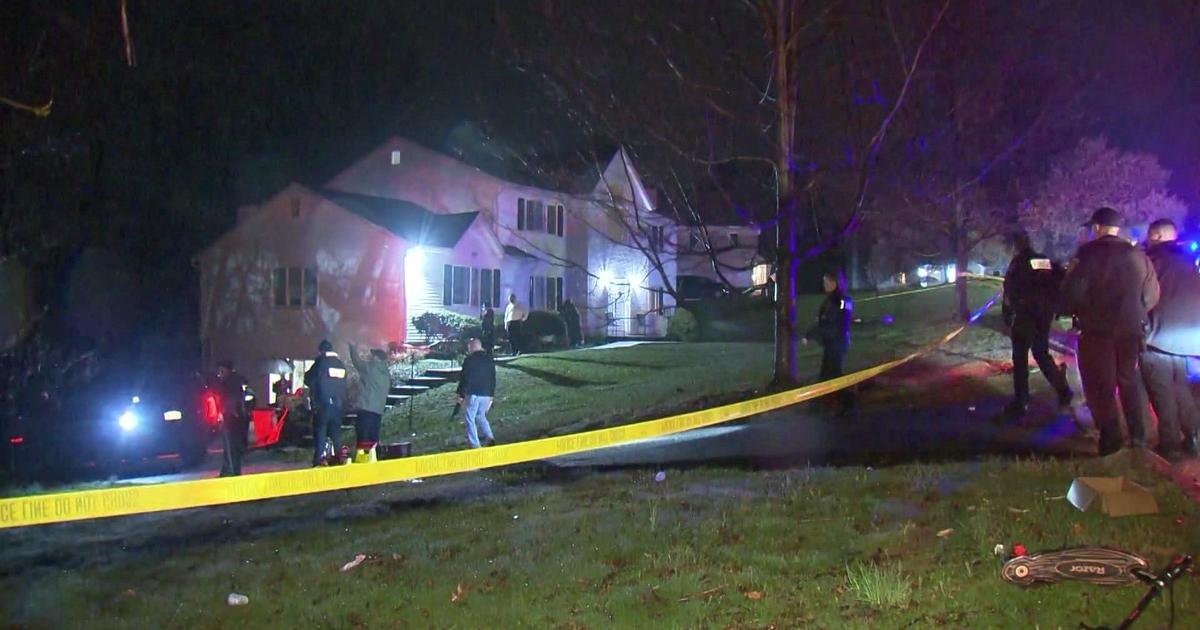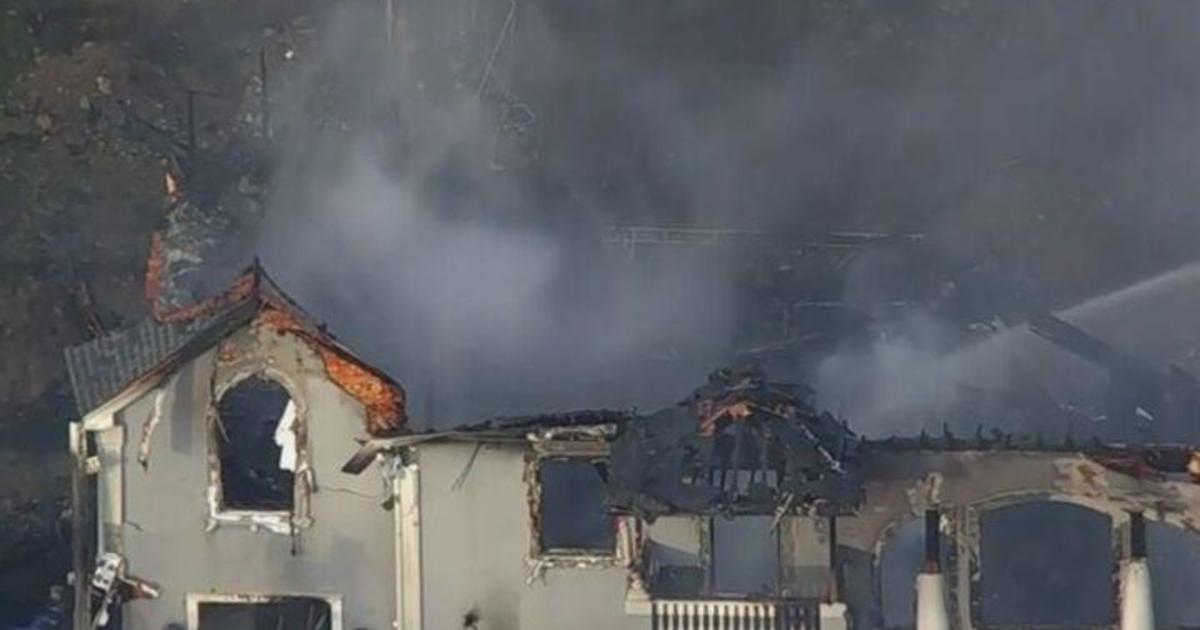How Can New York's SOTA Program For Homeless Families Be Fixed?
NEW YORK (CBSNewYork) - CBSN New York's Mark Peters joins Ali Bauman to talk about issues in fixing New York City's Special One-Time Assistance (SOTA) program, under focus after homeless families were placed in uninhabitable homes.
Despite its problems, the head of New York City's Department of Homeless Services told CBS2 the SOTA program is still going on, but it has changed inspection requirements. Commissioner Steven Banks also claims that the city is investigating landlords.
Peters, who served the commissioner of the New York City Department of Investigation from 2014 to 2018, has been following the homeless family crisis detailed in CBS2's Forgotten Families series.
"These are really important stories partly because it's just heartbreaking to see the conditions in which some of these families are having to live," said Peters. "But also - and this is what makes it so important - is because these are things we can avoid in the future if we make sure that there are safeguards in place so that government programs don't end up spending money foolishly where they shouldn't.
"It's heartbreaking to see the conditions these people are living in, but it's also important because it's a warning that we need to fix some things," he said.
Earlier this week the DHS Commissioner Steven Banks said that he has referred this to DOI. What is DOI's role in these types of scenarios?
"I give Steve Banks a lot of credit for sending this to DOI that's exactly the right thing," said Peters. "Because Steve and the Department of Homeless Services, their job is to find housing for families that are homeless. It's not to investigate whether people are stealing money from the city. So he did the right thing by sending it to DOI because that's DOI's job.
"One of the things the Department of Investigation does is when it has jurisdiction over people who get money from the city whether it's not for profits or individuals who do business with the city," he said. "They investigate two things one is money being stolen from the city and if so are there private individuals like landlords or brokers who should be arrested. Two is are there problems, broader, systemic problems with the city program that made it possible for the money to be stolen. And then DOI can come in and make recommendations for how to prevent the theft in the future."
The DHS said they've allowed families to move into houses based off a promise from the landlords that they'll make repairs after the families move in. That promise is not in writing, making it a lot more difficult when such repairs are not done.
"One of the things you want to do when you're setting up any program is whether you're setting up housing in New Jersey or really any kind of services is one you always want to get in writing both the service that's going to be provided and then you want to get in writing from the person that actually provided the service," said Peters. "If you're a prosecutor, you want to hold people accountable. Having something in writing not only saying what I'm going to do, but then this is what I did makes it much, much easier to hold people accountable. Because if they lie to you on those forms you can prosecute them for that."
The DHS said since October when they realized these problems were going on, they changed that policy. They're no longer going to move families in on a promise. But before a city agency writes a check with city funds, what is the standard expectation for doing their due diligence about the person they're giving this money to?
"Obviously you should expect every city agency to do their due diligence before handing money over to somebody," said Peters. "The question becomes what's the right amount of due diligence. Because on the one hand you want to do enough due diligence where these kind of problem don't happen.
"On the other hand, especially when you have large numbers of vendors you're dealing with, you can't shut the whole program down and delay getting people housing solely because of due diligence," he said. "So you have to find a way to balance those two and part of hopefully what you get if an agency like DOI looks at this are recommendations from professional investigators on how to make sure you do due diligence that at the one hand catches the bad apples, but on the other hand doesn't so completely slow the process down that you're not doing the thing that DHS is supposed to do which is find housing for people who need it."
Throughout all of this, the DHS has been saying they were swindled by some bad actors. They say the agency has helped 3,500 families with about $17,000 per lease. That's a lot of money and that money is going through a lot of hands before getting to the landlord.
Because it starts with the shelters, it goes to the shelter workers, shelter workers introduce families to private real estate brokers who then show them the houses and then that goes to landlords. It's a long process before getting to the landlord. In doing that process, what is the responsibility of the city in hiring commissioned real estate brokers and allowing this money to get passed through so many hand?
"There are two parts to that. The first is whenever you're hiring private entities especially people working on commission to do stuff for the city in and of itself that's not a problem," said Peters. "But you need to give extra scrutiny to something like that. Because those folks extra incentives aren't perfectly aligned with yours. The second thing is whenever you design a program you want to try generally to design the program with the fewest moving parts possible. With fewest number of people the money has to pass through because each step along the way is an opportunity for something to break down or another bad apple to come into it.
"Sometimes that's unavoidable and one of the things that hopefully you could get from an investigation is to figure out is there a way to set up some precautions for the future," he said. "Clearly whenever you're setting up a program in which private nongovernment have to make decisions and certainly when they're working on commission you need to be especially careful because those folks have incentives that are different from the city's incentive which is to get good quality housing for the cheapest price."
Once the DOI starts looking into it, the goal is to prevent this from happening again, but how likely is it that the city will get back any of the money that it lost?
"Law enforcement manages to recover money all the time," said Peters. "Law enforcement does restitution all the time. If it turns out that a crime was committed, if it turns out that the money is still there, law enforcement absolutely has the ability to seek restitution and it frequently does. We're not going to know the answer to that until this is all done. But part of the reason for making our form to DOI is to make restitution when it's possible. That's another good reason why something like this would be given to DOI."



